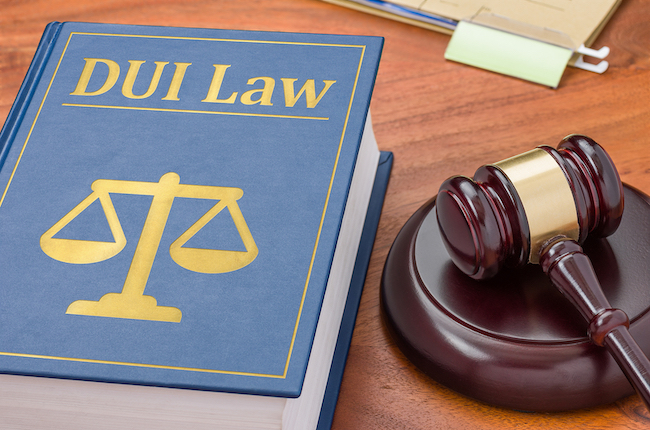How Long Does a DUI Stay On Your Record?

Driving under the influence might seem like a minor offense to be charged with, but you’ll be surprised how many people get arrested for this common criminal offense. The Department of Justice compiled data that shows more than one million people in the US get arrested for driving under the influence every year.
Since it’s a criminal offense to drive while intoxicated, it goes on your record, and it might pose some problems for you later on in life, to say the least. One minor lapse in judgment, such as driving while impaired, can have a severely negative and ripple impact on your life. But how long does a DUI stay on your record?
What is a DUI, and what’s the difference between a DUI and DWI
A DUI and DWI usually refer to the same thing and sometimes are used interchangeably. A DWI refers to driving while intoxicated and sometimes is referred to as driving while impaired, while a DUI refers to driving under the influence of drugs or alcohol.
The two terms may vary depending on the state you live in, but they both mean that the driver has committed a criminal offense that puts their health and safety and others at risk by driving while in an intoxicated state.
The drugs in question might be over-the-counter drugs, prescription medicine, or illegal ones. A DUI is often classified as a misdemeanor, but repeat offenses in some states might lead to a felony charge.
Police officers determine drunk driving by testing the driver’s blood alcohol concentration, with the limit also varying by state. Many states consider 0.08% BAC as the legal alcohol limit, but others like Utah lower their legal limit to 0.05%.
The legal limit might also be lower depending on a few factors. For example, California considers drivers under 21 to be intoxicated if their BAC is higher than 0.01%. For commercial drivers, the legal limit is 0.04%.
How long does DUI stay on your record?
There is no one answer for all in the cases of DUI as different states handle DUI’s differently. However, in most states, a DUI stays in your record permanently and on your driving record for ten years and sometimes results in revocation of your driving license.
The Department of Motor Vehicles uses your driving record to decide the best move forward in some situations, such as reinstating your suspended license. Many states use a driver’s license point to track how you drive.
This means that if you commit certain infractions, such as driving under the influence or running a red light, the DMV will assess the points you’ve accumulated, which may result in fines or suspension. If you exceed the allocated thresholds, you will likely face harsher penalties.
Can you get a DUI expunged?

Once a DUI goes on your record, it’s available for law enforcement and the DMV to see. You cannot get a DUI removed from your driving record, but the good news is that any potential employers can’t see it as it’s not included in a background check, although you are obligated to disclose it. However, you are eligible for an expunged DUI if:
- You aren’t currently charged with other criminal offenses
- You have already served probation and all other penalties
- Your sentence didn’t include state prison
- You were a minor when the DUI arrest was made
If you feel the above criteria, an experienced DUI lawyer might be able to help you expunge your DUI. The attorney will file a request for expungement, and the prosecutor’s office will decide whether or not they’ll erase it, in which case your lawyer will handle the outcome for you. A hearing will be set and, in most cases, the request will be approved.
Once the expungement is approved, it’s no longer included in your criminal record, and you won’t have to disclose your DUI to a prospective employer. However, if you get arrested on a new DUI charge, the expunged DUI will be included as a past charge.
What are the penalties for a DUI?
Aside from the DUI going on your permanent record, there are other penalties that you might face when arrested for a DUI. If it’s your first offense, you’ll get off with a misdemeanor and will have to part with a set amount, usually ranging from $400 to $1000 in fines depending on the state.
You might also face jail time from 2 days up to 6 months. However, a judge might decide to put you on probation for a maximum of five years instead of sending you to jail. You’ll also have to enroll in DUI school and take 30 hours of classes. If your blood alcohol content was higher than .20%, you’d have to register for a nine-month program.
You’ll also have your driver’s license suspended for 180 days. A repetitive DUI in 10 years counts as a felony, resulting in prison time of up to 5 years, inclusive of fines and a ten-year license suspension.
DUI implications
Your insurance
A DUI on your record makes it difficult for car insurance to trust you. If an insurer notices that you have a DUI on your record, they might end up raising your premiums to make the purchase a nightmare for you.
Your future
If you intend on getting a job as a commercial driver, then it’s in your best interest to avoid getting convicted of a DUI or wait until your record is clean. Most companies don’t accept commercial drivers with DUIs on their records.
If your license is suspended, you can apply for an SR-22 to petition the state to allow you back on the road. An SR-22 is costly, but it verifies that the minimum liability car insurance amount has been met.
Work with an experienced DUI attorney
DUIs aren’t easily removed from your record unless you can meet the criteria mentioned above. If you believe you qualify for an expungement, consult with a qualified and experienced attorney to help you file a request to the court. Although the process takes time, it’s worth the wait with an experienced attorney. Contact Meltzer & Bell today at (561) 557-8686 and set up a consultation to know the way forward.

